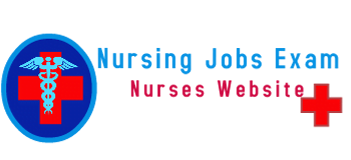Vertigo is a sensation of spinning or dizziness, often described as the feeling that you or your surroundings are moving when they are not. It is a symptom rather than a diagnosis itself and is typically associated with disturbances in the inner ear or brain.
Causes of Vertigo
1. Peripheral Causes (inner ear):
👉Benign Paroxysmal Positional Vertigo (BPPV)
👉Meniere’s disease
👉Vestibular neuritis or labyrinthitis
👉Ototoxic medications (e.g., aminoglycosides)
👉Ear infections
2. Central Causes (brain/CNS):
👉Stroke
👉Multiple sclerosis
👉Tumors (e.g., acoustic neuroma)
👉Migraine (vestibular migraine)
👉Head injuries
3. Other Causes:
👉Dehydration or hypotension
👉Anxiety or panic disorders
👉Medications (anticonvulsants, antidepressants, antihypertensives)
Symptoms of Vertigo
👉Spinning sensation (subjective or objective)
👉Nausea and vomiting
👉Loss of balance or unsteadiness
👉Tinnitus (ringing in ears)
👉Hearing loss
👉Nystagmus (involuntary eye movements)
👉Sweating
👉Lightheadedness
Diagnosis of Vertigo
1. History & Physical Examination:
👉Duration, triggers, associated symptoms (hearing loss, headache, etc.)
2. Special Tests:
👉Dix-Hallpike maneuver (for BPPV)
👉Head thrust test
👉Romberg’s test
👉Fukuda stepping test
3. Audiologic Tests:
👉Audiometry
👉Electronystagmography (ENG)
👉Videonystagmography (VNG)
4. Imaging:
👉MRI/CT scan (if central causes suspected)
5. Blood tests to rule out infection, metabolic causes
Nursing Mcq for Nclex RN Prometric HAAD MOH AIIMS PSC
Treatment for Vertigo
1. Based on Cause:
👉BPPV: Epley maneuver, Brandt-Daroff exercises
👉Vestibular neuritis: Corticosteroids, antivirals (if viral)
👉Meniere’s disease: Diuretics, low-salt diet, vestibular rehab
👉Migraine-related vertigo: Migraine management
👉Central vertigo: Treat underlying neurological condition
2. Medications:
👉Vestibular suppressants: Meclizine, Diazepam, Lorazepam
👉Antiemetics: Promethazine, Ondansetron
👉Corticosteroids (for inflammation)
👉Antihistamines
3. Physical Therapy:
👉Vestibular rehabilitation therapy (VRT)
4. Surgical Intervention: In resistant or severe cases (e.g., labyrinthectomy, vestibular nerve section)
Peripheral Blood Smear Examination
Complications of Vertigo
👉Falls and injuries
👉Depression and anxiety
👉Permanent hearing loss (Meniere’s)
👉Impaired quality of life
👉Dehydration from severe vomiting
👉Social withdrawal
Prevention
👉Avoid sudden head movements or position changes
👉Manage blood pressure and blood sugar
👉Reduce salt and caffeine intake (especially in Meniere’s)
👉Avoid known triggers (migraine, anxiety)
👉Use assistive devices if balance is impaired
👉Hydration and regular meals
Nursing Diagnosis of Vertigo
1. Risk for Injury related to imbalance and dizziness
2. Disturbed Sensory Perception (kinesthetic) related to vertigo
3. Impaired Physical Mobility related to unsteadiness
4. Nausea related to inner ear disturbance
5. Anxiety related to fear of falling or recurrence of symptoms
6. Deficient Knowledge regarding disease process and management
Nursing Considerations
👉Ensure patient safety: fall precautions, assist with ambulation
👉Educate about avoiding triggers and positional changes
👉Monitor fluid and electrolyte balance (especially if vomiting)
👉Administer medications as prescribed
👉Support during maneuvers like Epley
👉Provide reassurance and reduce anxiety
👉Coordinate with physical therapists for VRT
👉Educate on medication side effects and compliance





